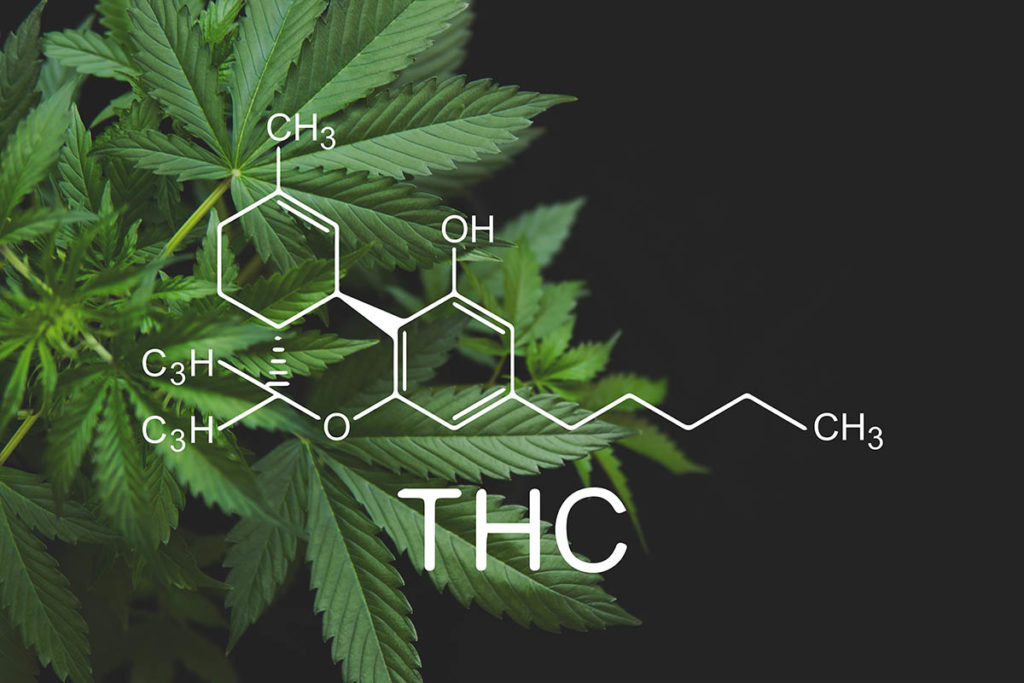While marijuana can’t cause fatal overdoses, ingesting large amounts can cause symptoms like anxiety and psychosis. Marijuana causes relaxing and calming emotions, as well as intoxication. Intoxication can impair your judgment and coordination, as well as cause negative emotions, like paranoia. THC is responsible for many of the mood-altering effects you experience when using marijuana. But what is THC? Marijuana is a psychoactive substance that is legal in some states and approved for medical use in others. It’s also one of the most popular recreational substances in the United States, as 12% of adults regularly smoke marijuana. Although marijuana use is popular, it’s a mood-altering substance that has the potential to cause substance abuse disorders.
What is THC?
So, what is THC, and is it dangerous? THC is one of at least 60 cannabinoids and 400 different chemicals in marijuana but is the main ingredient that induces intoxication. THC creates mood-altering effects by interacting with your cannabinoid receptors which then induce intoxication. The potency of marijuana is based on how much THC is in it. Marijuana has more THC now than in past generations. Medicinal and recreational marijuana has created an increased supply of highly potent marijuana with THC levels exceeding 70%. For reference, the average THC content of marijuana between the 1960s and 1980s was only 2%. If you’re still wondering what is THC and is it dangerous, while THC can’t cause fatal overdoses, ingesting marijuana with high levels of THC makes it more likely that’ll you’ll experience negative side effects. If you have a co-occurring disorder, marijuana can worsen underlying symptoms because of how it interacts with your brain chemistry. Since marijuana causes relaxation, untreated mental health symptoms, like anxiety, can make you prone to self-medicate with THC. Because marijuana can impact your coordination, cognition, and judgment, you can engage in dangerous or risky behavior while high, which can lead to legal consequences.
Is Marijuana Addictive?
When wondering what is THC, you may also be curious about whether marijuana is addictive. While marijuana doesn’t create physical dependency, you can develop a psychological dependency. A psychological dependency doesn’t cause you to experience physical withdrawal symptoms but can cause the same harmful consequences as a physical addiction. Symptoms of a psychological marijuana addiction include:
- Difficulty controlling or reducing your marijuana use
- Feeling anxious when you don’t use marijuana
- Cravings when you’re exposed to people, places, or things that remind you of marijuana
- Spending the majority of your time using or under the influence of marijuana
- Using more than you intend to regularly
When you have a psychological addiction, you still experience symptoms like intense cravings. You can deal with mood changes, such as anxiety, when you stop using. The combination can make it hard to recover without help from a substance abuse treatment center. Because your brain’s pleasure and reward center changes when you abuse and become psychologically dependent on marijuana, it can take time for your brain to fully heal. Learning how to cope with negative emotions, stress, and conflict is an important skill taught during treatment, as anxiety, depression, and other unsavory emotions can intensify cravings. When you have a marijuana dependency, it’s common to use marijuana as your main coping mechanism. It’s important to develop healthy coping mechanisms because avoiding drugs and alcohol is necessary during recovery.
Finding Help Today
If you’re wondering what is THC and is it addictive, the simple answer is that marijuana can cause psychological dependency. When you have a marijuana dependency, it can impact your personal, social, and familial life. If you’re struggling with a marijuana dependency and would like help achieving lasting recovery, reach out to Promises Treatment Centers at 844.875.5609 today to find out more about our substance abuse programs.

